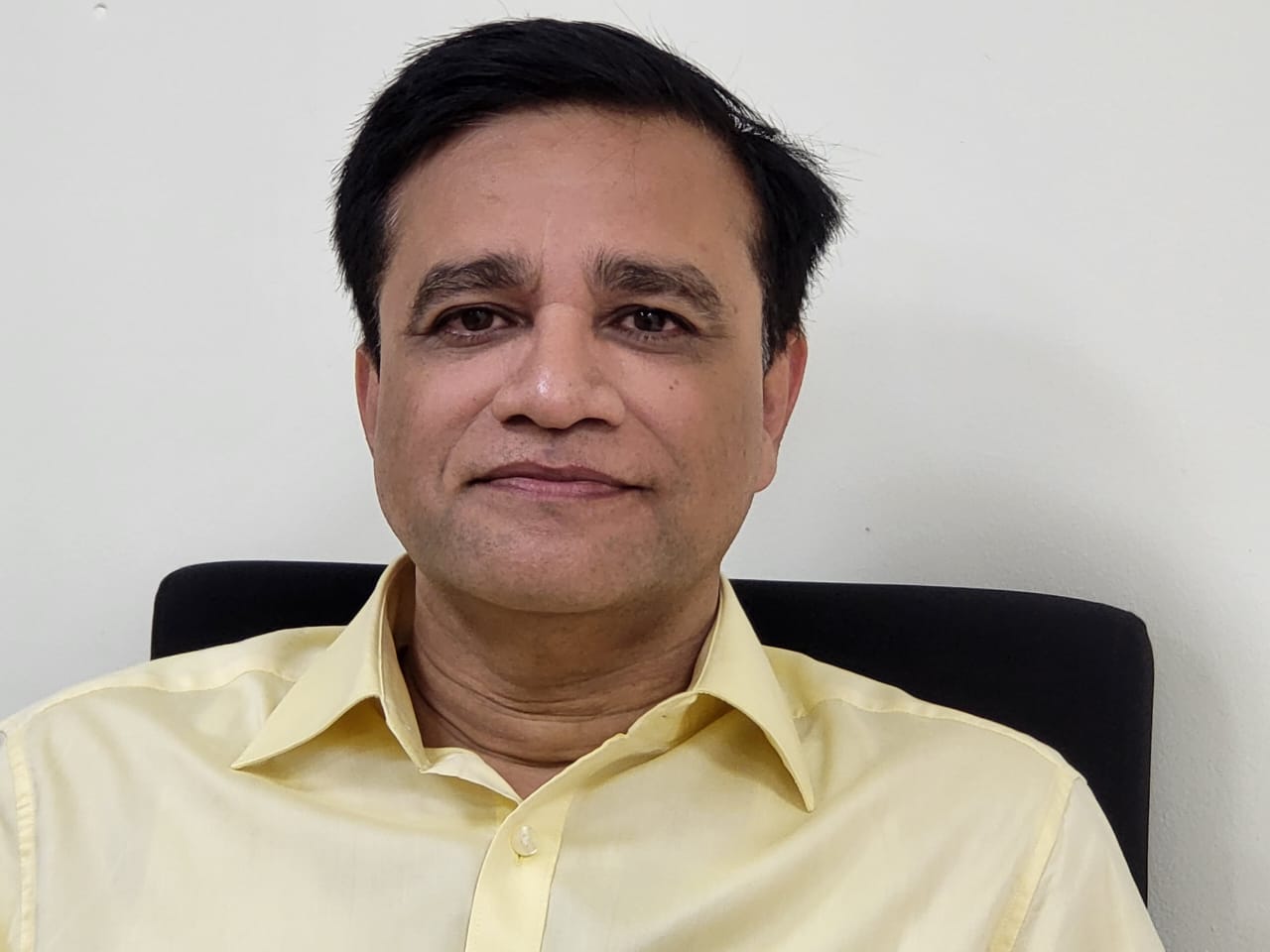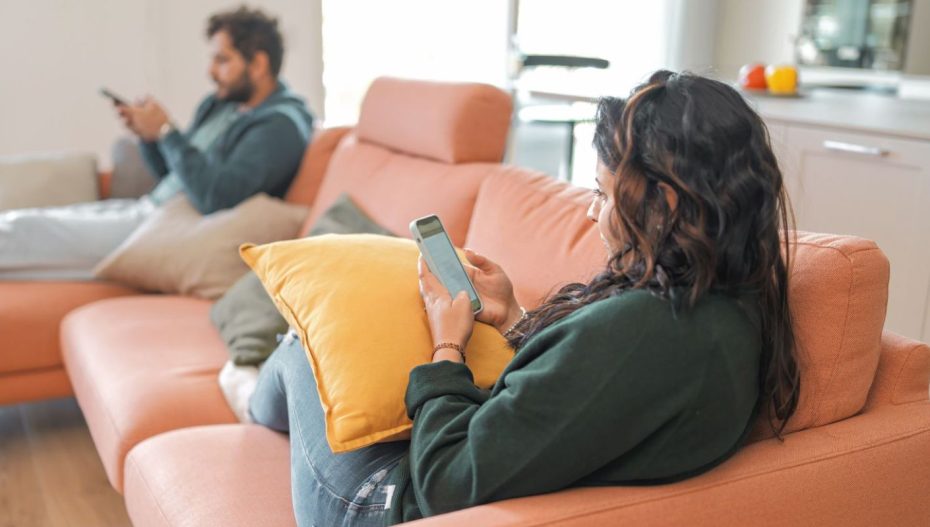Capture this scene in your mind’s eye. Amita and her husband, Nirav, are having a conversation. Well, if you can call that a conversation. Nirav is absorbed in his phone and despite Amita’s repeated requests to look up and listen to her, there is no response from him except for ‘Hmms’ and ‘Uhhs’.
This is a classic case of ‘phubbing’ – the increasingly common practice of ignoring one’s companion or companions in order to pay attention to one’s phone. “Phubbing” is “phone-snubbing” another person, either on purpose or unintentionally.
Do you keep thinking about checking your phone when someone is talking? Do you look at your messages or social media posts in social settings? Instead of screening calls, do you always answer the phone when you are with other people? If the answer is yes to one or more of these questions, you may be well on your way to becoming a phubber.
Common phenomenon

The Service for Healthy Use of Technology (SHUT) Clinic at the National Institute of Mental Health and Neurosciences (NIMHANS) in Bengaluru is India’s first technology de-addiction clinic. (The digital detox helpline number of the clinic is 9480829675. The helpline is accessible on Fridays from 9.30 am to 1 pm.)
According to Dr Manoj Kumar Sharma, who heads the SHUT clinic: “Phubbing is a common phenomenon. In a family or social context, if a person is giving all his attention to a phone, others feel that he is not interested in interacting with them or does not respect them. Phubbing may or may not meet the criteria of addiction.”
Clinical psychologist and psychotherapist based in Ahmedabad, Dr Nimisha, says: “In my experience as a practitioner, I observe a rise of around 60-70 per cent in phubbing behaviour in interpersonal relationships like parent-child ones or relationships among family members in the same room. There are fewer healthy engagements in the family like group conversations or meal-time banter. Often, people are not even aware that phubbing causes discomfort to others around them, especially to loved ones. This could be a result of ‘habitual mindlessness’.”

Dr Nimisha
Major causes
Why do people indulge in phubbing? “Excessive use of mobile phone can be because of compulsive scrolling behaviour. For a phubber, online activities become a priority over offline family-based or social interactions. The Fear of Missing Out (FOMO) is another cause for phubbing. Lack of acceptance on the part of the phubber is another reason why such behaviour continues. The person may be in denial that he or she is using the phone excessively,” says Dr Sharma.
Other reasons for phubbing according to Dr Nimisha are internet addiction, neglect of interpersonal relations, avoiding uncomfortable questions, tendency to focus on self-soothing acts, and traits of OCD (obsessive-compulsive disorder). Teenagers who feel misunderstood or lonely may resort to phubbing as an avoidant action due to their inability to maintain healthy social connections, she explains.
Adverse impact
Phubbing is clearly rude and insensitive behaviour. People may feel hurt and frustrated when they are ignored by a phubber. Phubbing can significantly affect a person’s friendships, romantic relationships and the phubber’s own mental health as well.
“The impact of phubbing is significant. The person who is phubbing misses out on social relationships leading to social distance and even isolation. Phubbing causes family distress. The phubber may be labelled as an addict and this may worsen the problem as it alienates the phubber,” says Dr Sharma.
When pointed out, many phubbers become defensive, says Dr Nimisha. Some do accept the problem and set boundaries for themselves to resolve it. Phubbing can cause social disengagement, loneliness, sadness, low self-worth, anger and isolation for the phubber or those who are regularly phubbed.
Poor communication
Parna Mukherjee, associate professor, Institute of Law, Nirma University, Ahmedabad, believes that the quality of communication in a family is adversely affected by phubbing. “I observe family members glued to their phones. They don’t look up when spoken to. The lack of eye contact makes communication less effective. Also, it may lead to confusing communication. People respond in a hurry as they want to get back to their phones. So, their response may not be a considered one.”

She also feels due to this addiction to gadgets, particularly phones, we are becoming a colder community. “We no longer share warmth and smiles. Even in social settings, we get restless when we have not looked at our phone for a while. There is nothing like undivided attention in communication anymore. These days our communication is more with machines than human beings,” says Parna.
Curbing the habit
There are several practical tips to curb phubbing. One, turn your phone over when you are in a social setting. This way the impulse to look at it diminishes. Two, track your phone usage so that you can set boundaries for yourself when it comes to phone use. Three, screen your calls and answer only important ones when you are with other people.
Awareness is crucial. The phubber must become aware that there is a problem. Why is he or she more comfortable being on the phone instead of interacting with people around?
“The phubber must develop interest in and empathy for other people. Practising mindfulness is a big help in curbing the negative habit of phubbing. For children, generally teenagers, parents must be good role models and not be glued to their phones themselves. Also, parents must have healthy conversations with their children on regulating emotions and the adverse consequences of screen addiction,” advises Dr Nimisha.
Need for understanding
Incidentally, phubbing only occurs when there is an expectation for you to engage with another person and give him or her your attention. When you have ‘some time’ or need to respond to something urgent, you’re not phubbing.

That’s the reason Anusha Iyer has a slightly different take on the matter. Advocacy manager and Associate Editor, at CERC (Consumer Education and Research Centre, Ahmedabad), she believes that these days it is common to be busy on the phone, but with moderation and understanding, there need not be a situation of phubbing at all.
“For instance, when I get home from work after a long day, I spend some time with my partner, where we share the experiences we have had during the day. We demarcate time when we put away our phones so that we can chat with family members and discuss ideas and issues. We prepare dinner and eat together as a family conversing with each other. After that, we all unwind in different ways. Sometimes, I unwind with my phone to watch a web series or a movie. Other family members know that this is the time I am on my phone. As long as there is balance and a mutually agreed duration spent on the phone, no one needs to feel ignored,” says Anusha.
Also Read: Another Indian Student Found Dead In The US












